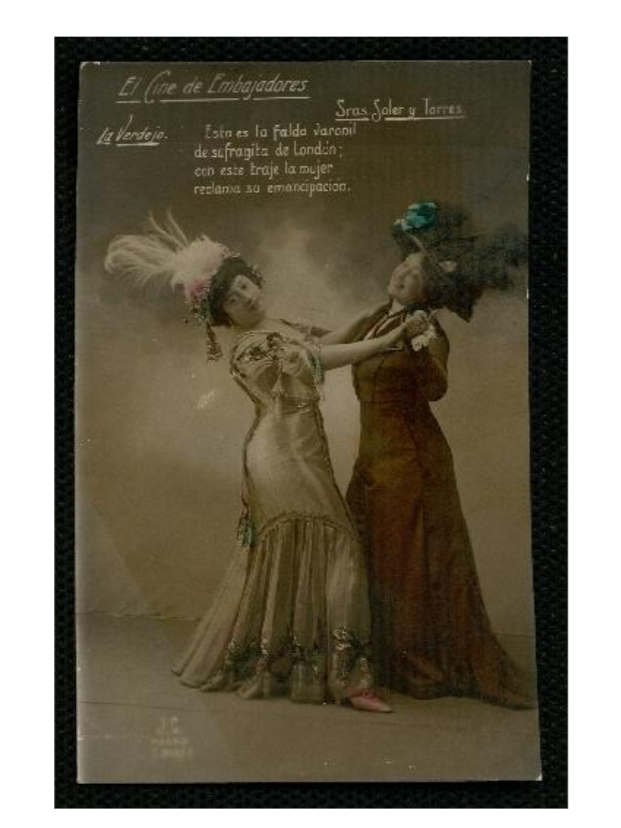- LAM
- FR
- Agenda du LAM
-
Partager cette page
10 MAR 2025 | CONFERENCE "Feminisms and LGTBIQA+ representations in Spanish cabaret in the early 20th century"
Une série de conférences sont organisées dans le cadre du "Séminaire du Laboratoire de musicologie de l’ULB »
Lidia Cachinero Rodriguez (Université de Grenade)
The cuplé has been a musical genre that has received scant attention in the history and musical historiography of the 20th century. This has contributed to the perpetuation of the questionable label of 'low culture'.
This conference is structured in four sections and aims to recover, study and analyse a wide repertoire of Spanish cuplés performed during the first third of the 20th century. Section I demonstrates how the lyrics contained marked feminist discourses that were used to denounce and make visible the demands of feminism, including those related to gender and sexual violence, women's participation in politics, equality of rights between men and women, and the existence of female pleasure. It combines methodologies of musicological analysis with those from cultural and gender studies. Section II demonstrates how the cuplé's characteristic openness and frivolity facilitated the exploration of alternative forms of love and desire that extended beyond the confines of heterosexuality. The drag shows and lyrics that addressed homosexuality and trans identities from a vindictive or punitive point of view contribute to an understanding of the broader debate that was taking place at all levels – clinical, legal and moral – and how LGTBIQA+ artists were publicly displayed on variety stages. The study of these lyrics, as well as the costumes, discourses and narratives through these letters, along with the examination of attire, speeches and narratives, employing Paul Ricoeur's hermeneutics and the methodologies of historical memory, enables the construction of genealogies of LGTBIQA+ artists during this period. This, in turn, allows for the determination of the strategies that these individuals adopted in order to be and to desire, both before and during the Francoist repression. Finally, Section IV examines the shared repertoire between the cuplés of early 20th-century Spain and the songs and ballads of Spanish popular music up to that point.
This is crucial for understanding the evolution and recovery of this musical heritage and the significance of LGTBIQA+ discourses and narratives as exemplars for the composition of lyrics that reflected these identities and orientations during the Franco dictatorship. Similarly, the comparative study of these musical traditions demonstrates that they have been preserved in the popular memory primarily through oral tradition, practised by women.
Furthermore, the significance of the LGTBIQA+ collective in their recovery, promotion and dissemination in the present era is evident from the analysis of the interdisciplinary works of Rafael Ríos, Julia de Castro and Rodrigo Cuevas.
10 Mars 2025 | 12h-14h
ULB, Maison des Arts, Salle de projection
Et en ligne

l'Université libre de Bruxelles, Solbosh
Maison des Arts, Salle de projection
Et en ligne
